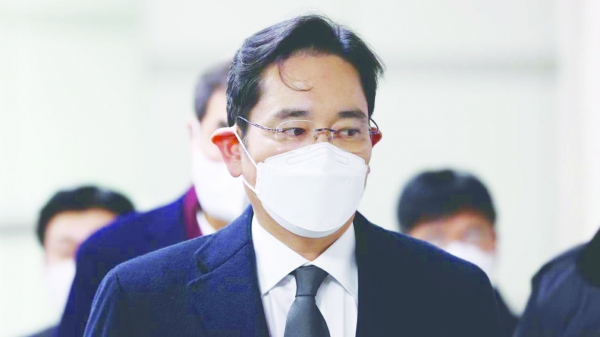
Lee Jae-yong, vice chairman of Samsung Electronics, was found guilty of providing 8.6 billion KRW in company money to Park Geun-hye, former president of Korea, and her confidante Choi Seo-won (formerly known as Choi Soon-sil) in exchange for his smooth succession as the head of Samsung.
In 2017, Lee was initially sentenced to five years’ imprisonment. However, after serving 353 days in prison, his sentence was reduced to two and a half years with four years of probation at an appeals court in February 2018. In August 2019, the Supreme Court remanded the case back to the Seoul High Court for retrial. On Jan. 18, a final sentence of two and a half years in prison without probation was announced. Lee and the team of special prosecutors accepted the sentence, and so Lee will now only serve the remaining year and a half of his sentence unless granted parole, pardon, or commutation.
Following the Act on the Aggravated Punishment of Specific Economic Crimes, the Ministry of Justice notified Lee that he is barred from working at a public institution or at any entity connected with his crime for five years after leaving jail unless an application for employment is approved by the Justice Minister.
Some claim that Lee’s sentence is too harsh based on his importance to Samsung’s future. In the short-term, the news of his sentence sent shares of Samsung Electronics downward by more than 4% before recovering. Some experts say an absence of Lee’s leadership could make top decision-making as well as large-scale investments, mergers, and acquisitions at Samsung difficult. “It’s really a huge blow and a big crisis for Samsung,” said Professor Kim Dae-jong (Sejong University) of the Department of Business Administration. The Korea Enterprises Federation formally expressed “deep concern” and hoped that the government would enact policies or take administrative action to minimize the disruption to Samsung’s operation.
Others claim that Lee’s sentence was too light. According to the court’s judgement of the case, the recommended sentence for Lee was from four years to 10 years and two months. However, the court decided on the shortest possible sentence that could be given legally. No one should be above the law; should Lee be given special privileges because of his position in Samsung?
While both sides have a point, bribery is unethical, corrodes the rule of law, and diverts wealth to corrupt politicians. Samsung created an independent compliance committee in February 2020 following the Seoul High Court’s orders to prevent ethical and legal lapses. Would not Lee’s imprisonment ultimately deter corruption and encourage transparent governance?


